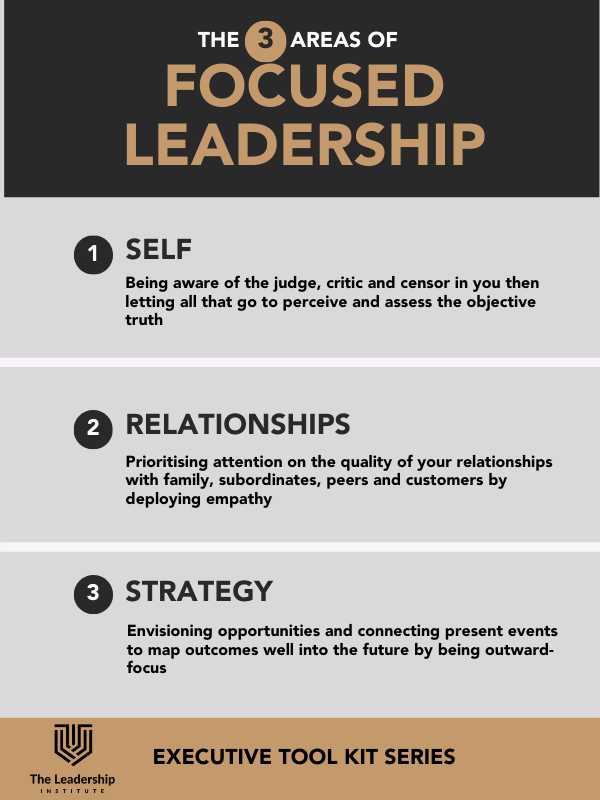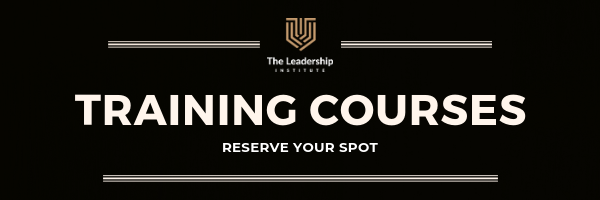“A wealth of information creates a poverty of attention”
Herbert Simon, Economist
Mental overload, constant disruption, sleep deprivation, stress and a whole lot more can mess up your brain’s executive function. When your job is to make tough calls all day, every day, you need a sustained reserve of laser-like focus.
We usually associate focus with being task-oriented – getting things done without distraction. As a leader, whose attention is in high demand, focus is not so much about task-completion, but about allocating your attention.
When you feel like your attention is pulled in all directions and you can barely get by, grouping your attention into three areas – yourself, others and the world-at-large – can help you better manage your focus.
A constructive focus on yourself and others is an essential element of emotional intelligence which helps you cultivate great relationships – a mark of a great people manager and influencer while a fuller and broader view of the world can help with being strategic and creative.
As a leader, you must strive to balance these three areas of attention. Not paying enough attention to yourself could get you unhinged and too much focus on others could make you seem too needy, while a lack of outward focus could leave you oblivious of the world-at-large.
Focus 1 – SELF
Are you aware of your biases and how they are impacting your decision-making?
Being aware of the judge, critic and censor in you then letting all that go, is important to keep your mental faculties focused on perceiving and assessing the objective truth. This advanced level of self-awareness is vital to good leadership.
Leaders who are used to giving input rather than receiving and processing information may find this annoying. Some transcendent thinking is required – to filter the noise and fine-tune your focus on what is essential.
“Cognitive control” is the scientific term for your mind’s ability to process information, guiding your decision or behaviour to act (or not) according to the better part of your nature. Cognitive control is at the centre of your self-awareness and your willpower. It lets you stay on track of your goal despite emotional distractions. People who have reasonable cognitive control behave calmly during a crisis, keep their anxiety in check and bounce back quickly from defeat.
Focus 2 – RELATIONSHIPS
Leaders who can focus on others are well regarded for the quality of their relationships with subordinates and peers. Regardless of their rank, they lead by influence, inspiring the best out of their teams, connecting and bringing people together.
Great leaders prioritise attention on the quality of their relationships by deploying empathy:
Cognitive Empathy – Are you able to understand and appreciate another person’s perspective? How people think, why they do what they do, what works and doesn’t work for them.
Emotional Empathy – Are you able to feel or relate to another person’s feelings? This ability is important for coaching and mentoring teams and for giving outstanding customer service by feeling what they feel and giving them what they need, fast.
Focus 3 – STRATEGY
Leaders who are outward-focused are great at envisioning a future of opportunities. They can connect present events to map outcomes and consequences well into the future.
Great leaders focus on two elements of value creation. One is by “exploiting” current conditions to create future value. And the second, riskier and more demanding element, is by “exploring” new avenues for future growth.
In a time where the same information is available to everyone, the real value is in your ability to focus on the right one so that you can deliver the best strategy and insight.

Learn to manage your attention, and lead your organisation with laser-like focus by signing up for our Leadership Events and Training Courses.
Check out these related posts —
Executive Toolkit #1 Influencing
Executive Toolkit #2 Navigating



